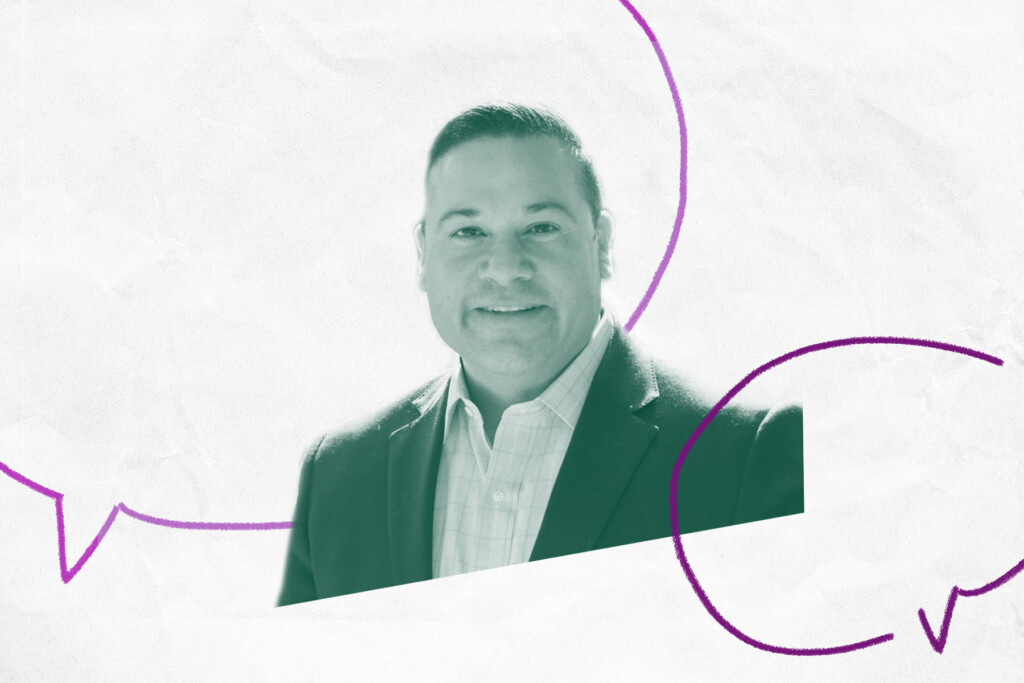Former Texas State Representative and Dallas mayoral candidate Jason Villalba recently returned to a post as partner at the Dallas office of law firm Frost Brown Todd, after spending a year as the general counsel for Dallas-based propertry management company Associa. In addition to his M&A practice, Villalba is leading a new venture for the firm that will allow him to combine his political and legal experience: He will be launching operations for CivicPoint, a government relations firm and Frost Brown Todd subsidiary, in Texas. “I said I would that if I can lead the growth and build it in Texas as big as I think it can be,” Villalba says. He hopes to split time between Dallas and Austin, launching CivicPoint operations near the capital and practicing law from North Texas. Vilallba also founded and leads the Texas Hispanic Policy Foundation in Austin, which conducts political research specific to the Hispanic population in Texas. Here, he shares plans for expanding CivicPoint across the Lone Star State to help businesses advocate for legislation that could change their industries, deal volume trends to watch in North Texas, and more.
D CEO: Why did you decide to return to practice M&A law at Frost Brown Todd?
Villalba: “I’m born and raised in Dallas, Texas. Methodist Hospital right across the river is where I was born. My parents were from the Oakcliff area—two young Hispanics in Dallas, Texas. They were 17 years old when they had my sister and 21 when they had me, so we were a young family. Growing up, my dad was a grocery man, so we moved around the state but we ultimately settled in the Dallas region. Grand Prairie is where I grew up. I went to Baylor University for undergraduate and studied finance and economics. I finished up a little bit early, because I couldn’t afford to go there that last semester, so I wanted to graduate sooner rather than later. I finished up with two majors, worked full time in the library, and graduated in the top tier fo my class. I came back and worked for Southwest Airlines as a financial analyst and economist for about a year with Gary Kelly. Back in those days, he ran Financial Planning and Analysis and was the CFO of the company. I studied and learned under him and went back to law school at UT, then came back to Dallas. I worked largely for Haynes & Boone for most of my career, and then I decided to run for office.
“After becoming a partner at Haynes & Boone, I decided it was time for me to be more committed to the community and Texas, so I ran for the State House. I represented Lake Highlands, Preston Hollow, and North Dallas—District 114. I served in that role for about eight years or three terms. I really enjoyed that process of being able to have a voice in the great conversation of Texas. I think it was so valuable for me to learn more about our community, our state, and be able to contribute.
“During my time down there, I had several major pieces of legislation, but the biggest one is just now coming to fruition: the creation of the Texas business court. Texas has not historically had a specialized business court. I was wondering why when I was there, and so I filed the first bill to create one. On the corporate side, Delaware is the preeminent state where companies are incorporated and were business law is conducted among major corporations all around the world. The reason is because they have a very specialized court called the Delaware Chancery Court. So, my idea was, why not have something like that in Texas? Texas is the ninth largest economy on the planet. Why don’t we have a business court that’s commensurate with that size? So, I drafted a bill, and it just passed. The governor signed it about two weeks ago. It’ll start in later part of this year, and then it’ll take its first cases next year.
“After my legislative career ended, I ran for Mayor of Dallas. I think everybody in Dallas actually ran that year. I was one of the 20 people who decided to run. My good friend Eric [Johnson] and I worked together in the legislature were joking about it. He’s been fantastic. During the time that I was in politics, I moved to another law firm that was acquired. I came over here to Frost Brown Todd about a year and a half ago and worked for about six months. Then, I got a call from a very good friend of mine, Senator John Corona, who was the state senator for this region during the time that I was there, and he had a company that he was building, Associa, and he needed a general counsel for a year. So, I told him I’d do it. We did it for a year, and then it was time for me to come back. Frost Brown Todd said, ‘Why don’t you come back? You can continue to practice law as an M&A lawyer.’ That’s my trade. They said, ‘We really need you, with your connections and your networks, to lead our our new CivicPoint office in Texas. CivicPoint is associated with the law firm. It’s a wholly owned subsidiary, but it’s not a law firm. It’s a consulting group that is focused on government relations, governmental affairs, and advocacy. It was a natural fit. I said I would I would do that if I can lead the growth and build it in Texas as big as I think it can be. There are a handful of law firms that do have government relations practices in Austin, but none of them are sizable. My goal was to build something that’s commensurate with the size of our state. So I’m excited about the opportunity to go down to Austin during session and just build a team.”
D CEO: What are your goals for CivicPoint?
Villalba: “My vision is that we really run the corridor. You’ve got San Antonio, Austin, Dallas—the big three—and then Houston. Not only will we do advocacy in Austin for the statehouse, but also at the community level. The city council of Dallas, for instance, has a number of issues that impact our companies or clients. Oftentimes, we’ll have a need for our client to have a voice in a conversation that’s happening at city council, so we’ll do that in Dallas and San Antonio. My goal is to have somebody really all around the state, but the core team will be in in Austin, because that’s where 80 percent of the work is going to come from. It’s going to be centralized during the legislative session years. We will also do advocacy at the agency level, too. So even though for instance, the legislature is not in session right now, TCEQ is, and the Veterans Affairs Committee is. All these different groups that are state agencies continue to run during time when they’re not in session, so we’ll have some of that practice as well. Then, of course, D.C, is always flipped on, so we’ll be spending some time up there as well.
“Most of our clients are going to be in the old economy, industries. That can include mobility, or healthcare, or education, or technology, and the technology right now particularly as it relates to data security is critically important to every organization. Companies all around the world really are now facing this, so what states are doing is implementing data security legislation to protect these kinds of data. That sounds great, but there are companies that are impacted by that, right? We have companies that maintain the database, or maintain information. They might want to utilize that information in certain ways, so, that may be an area where I think we can help advocate for common sense and thoughtful legislation that protects data, but doesn’t necessarily infringe upon the free market. Another area, of course, will be around any kind of environmental controls or regulations. We want to make sure that we have a safe, clean state that’s smart about how it deals with and addresses the environmental issues that we certainly face, but we also want to make sure that we don’t get in the way.
“I think my my number one priority right now is to build an effective team that can launch civic point in Texas in a meaningful and visible way.”
D CEO: What trends are you seeing around deal flow in 2023 as an M&A attorney?
Villalba: “Everyone expected 2023 to be slow. When we started 2023, there were people who were on their heels looking at what was going to happen, where are these rising interest rates going to impact financing, and would financing start to fall because of it, and would that lack of financing mean less M&A work? The answer to those three questions I think is yes. We started the first quarter of the year in January and March pretty slowly from an M&A perspective. There just hasn’t been the type of work that we’ve seen historically at the beginning of the year. Normally, in January through March, you’re loading up the bus to get going. By April, May, June—second quarter—you really see the fires burning. The Midnight Oil is going to keep things going because it’s so busy. I think this year, because of the delayed start, there hasn’t been as much M&A work in the first part of first quarter, but I think we’re starting to see it come back right now. We’re overseeing those early stage diligence processes, and the letters of intent are starting to cross paths a little more frequently than we were in the first quarter.
“I think that’s a function of the fact that the economy has not gone into recession. We’ve seen the GDP continue to be positive for the last two quarters, and that means that this year will not be a recession. We’re seeing these interest rates starting to slowly creep down again, and I think that will increase financing loans. Those loans will help to grease and lubricate the M&A market. We’re starting to see a bit of an upturn. I’m excited about the second half of the year, because I think everybody was really worried about 2023 being down here, and now it looks like it remains strong. The stock market remains in bull territory for the year. No one expected that. Everyone thought the stock market was going to really get hammered this year. Make no mistake, that could be there: There could stock market downturn, but the fundamentals are in place in the United States to suggest that we’re going to maintain a healthy rest of the year. Unemployment remains at historic lows. You’ve got interest rates that are back to the typical numbers. You’re seeing consumer sentiment remain pretty robust. People are buying stuff. So, I believe the economy remains strong, which means M&A is strong.”
Author




